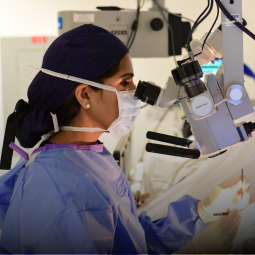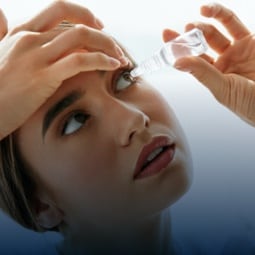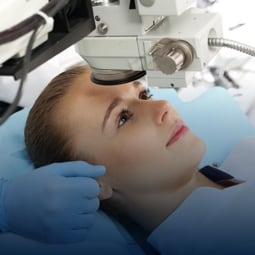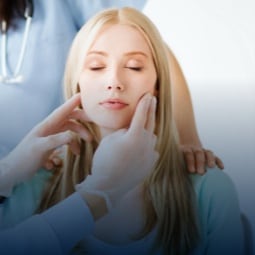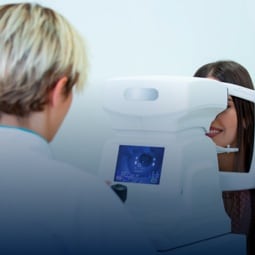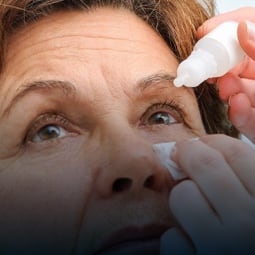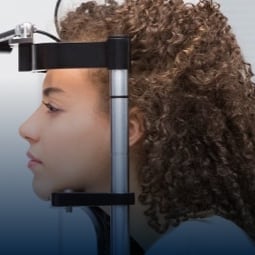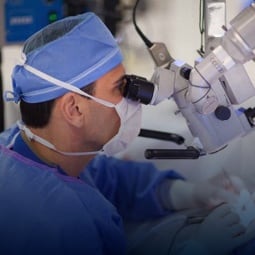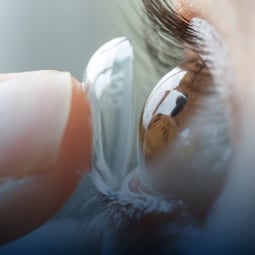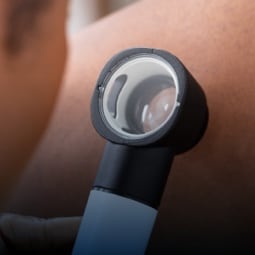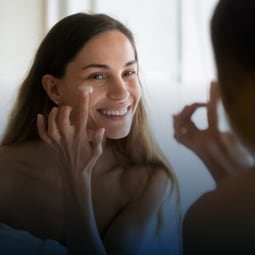
Experience a Whole-Body Approach to Eye Care
Managing your eye health starts with managing your overall health.
At Center for Sight, our team takes a preventive approach to eye care, called lifestyle medicine, and combines nutrition, lifestyle medicine, and technology to address both common and complex vision conditions.
Led by Dr. Todd Lang, the only optometrist in the United States board-certified in lifestyle medicine, this approach can help you see your health from a different lens and open opportunities to live a more health-conscious life.
Book an appointment with Dr. Lang today!


What Is Lifestyle Medicine?
Lifestyle medicine is a holistic approach that focuses on preventive care by integrating lifestyle choices and nutrition to support eye and overall health.
But lifestyle medicine is more than telling you to diet and exercise—Dr. Lang takes a look at your entire well being to find effective, sustainable ways to enjoy healthier lives and sight.

Adjusting Your Lifestyle to Serve Your Vision
To start this approach, Dr. Lang takes a detailed look at your current lifestyle. He considers your personal and family health histories, diet, physical activity, and even your sleep patterns to develop a plan that serves to support your eye and whole-body health.
By making simple, sustainable, and achievable adjustments in your life, Dr. Lang could help you reduce the risk of eye concerns like diabetic retinopathy, glaucoma, and dry eye syndrome.
Increasing Healthy Fats
Consuming omega-3 fatty acids found in fish, nuts, flaxseed and soybeans has been shown to provide remarkable benefits in preventing and managing age-related macular degeneration and dry eye syndrome.
Reducing Sodium & Sugar Intake
Limiting your sugar and sodium intake can help reduce the risk of high blood pressure, diabetes, and retina diseases.
To minimize our sodium and sugar intake, start by checking the nutrition information on any canned foods and try to keep the daily sodium intake below 2,300mg.
Exercising
Regular exercise is linked to healthy vision—studies show physically active people have a lower risk of developing serious eye diseases like glaucoma and diabetic retinopathy, as well as high blood pressure and cholesterol levels.
Sleeping
Lack of sleep affects both the mind and body; symptoms include yawning, low concentration, fatigue, and more. Studies indicate that sleep also impacts eye health, with poor sleep linked to increased risk of glaucoma.
Drinking More Water
Proper hydration is crucial for maintaining a healthy body. Not only does it quench your thirst and keep your tissues and organs (even your eyes!) hydrated, but drinking enough water can even manage dry eye symptoms.
Age, physical activity, and diet all come into play when determining how much water you need to drink each day.
Speak to Dr. Lang Today
If you’re looking for holistic solutions to your eye health concerns, then it’s time to book an appointment with Dr. Lang at our Port Charlotte location.
With his knowledge of lifestyle medicine, he can help you find better ways to manage your risk for eye diseases like glaucoma, diabetic retinopathy, and more.
Together, you can create a plan that fits your needs and lifestyle. So don’t wait—book an appointment today and get started on your journey towards better eye health!

Our Locations

News
How Long Does a Facelift Last? Factors That Shape Your Results
Faces by FezzaWhat a Facelift Does and How Longevity Works A surgical facelift procedure lifts and repositions deeper facial tissues while smoothing lax skin. Results last because underlying support layers are addressed, not only the surface. Aging continues over time, yet most patients see a meaningful reset that looks natural as the face settles. The goal is […]
Read More… from How Long Does a Facelift Last? Factors That Shape Your Results
How Botox Works: The Science Behind the Smooth
Cataract Surgery, Eye CareUnderstanding how Botox works starts with understanding nerve signaling. Tiny, targeted amounts of botulinum toxin type A go into specific facial muscles to quiet the messages that trigger contraction. When the pull eases, the skin over those muscles rests and the most active creases soften. Movement remains, but the sharp peaks of expression lines are […]
Read More… from How Botox Works: The Science Behind the Smooth
What Are the Early Signs of Cataracts?
Cataract Surgery, Eye CareCataracts creep in slowly, clouding the eye’s natural lens long before many people notice a change. Recognizing the early signs of cataracts—and acting on them—lets you and your eye‑care team prevent minor annoyances from becoming daily roadblocks. Below, you’ll learn how cataracts form, the most common cataract warning signs, and when to schedule a visit […]
How Long Does a Facelift Last? Factors That Shape Your Results

What a Facelift Does and How Longevity Works A surgical facelift procedure lifts and repositions deeper facial tissues while smoothing lax skin. Results last because underlying support layers are addressed, not only the surface. Aging continues over time, yet most patients see a meaningful reset that looks natural as the face settles. The goal is […]
Read More… from How Long Does a Facelift Last? Factors That Shape Your Results
How Botox Works: The Science Behind the Smooth
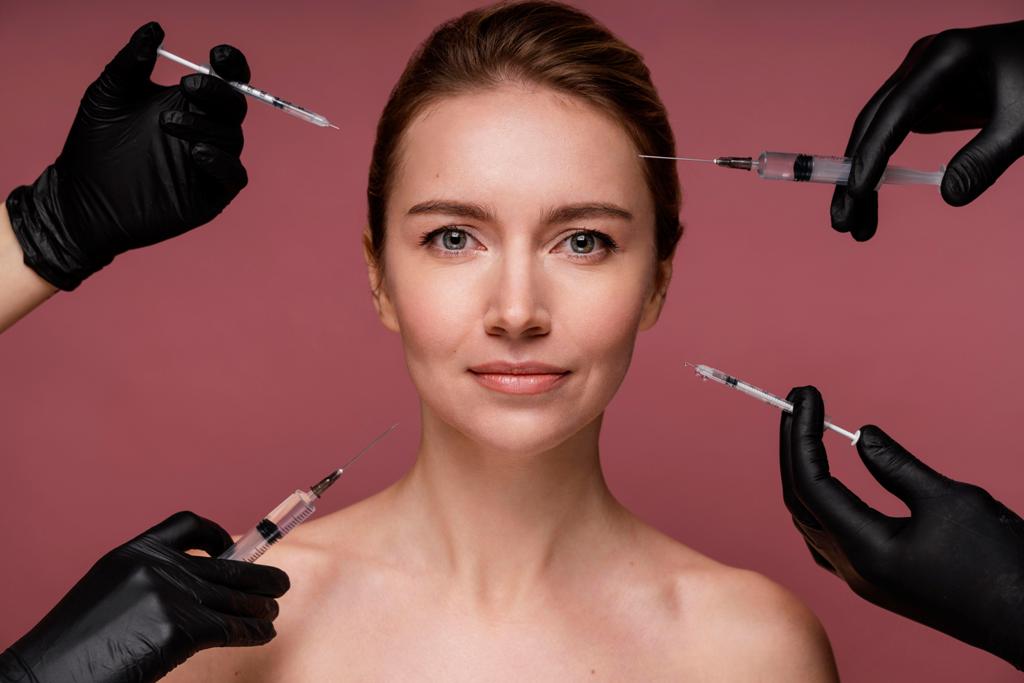
Understanding how Botox works starts with understanding nerve signaling. Tiny, targeted amounts of botulinum toxin type A go into specific facial muscles to quiet the messages that trigger contraction. When the pull eases, the skin over those muscles rests and the most active creases soften. Movement remains, but the sharp peaks of expression lines are […]
Read More… from How Botox Works: The Science Behind the Smooth
What Are the Early Signs of Cataracts?
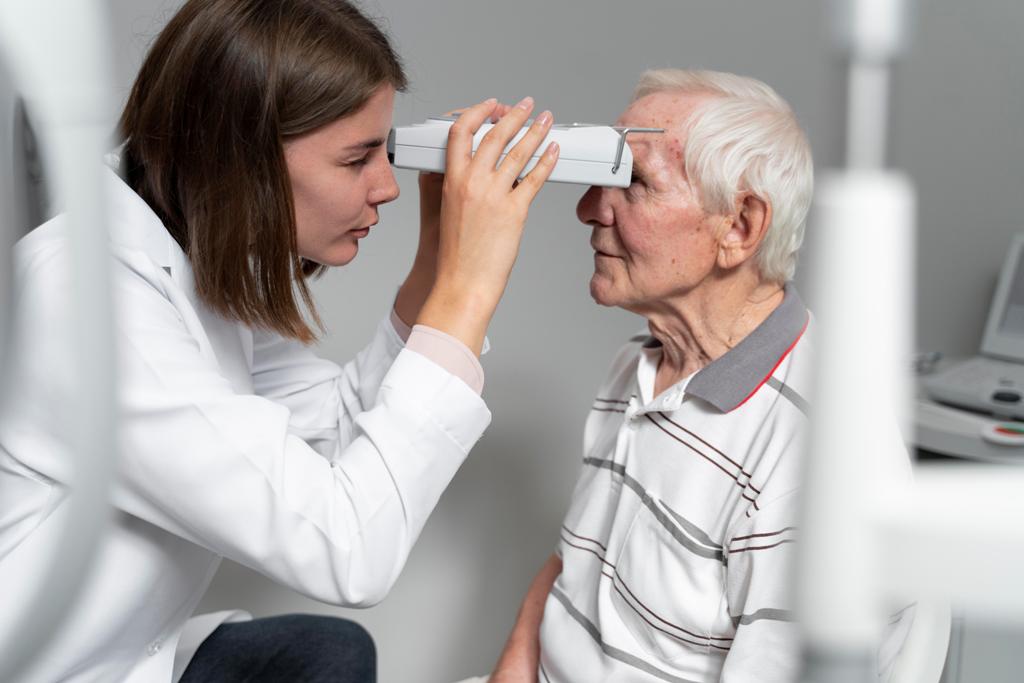
Cataracts creep in slowly, clouding the eye’s natural lens long before many people notice a change. Recognizing the early signs of cataracts—and acting on them—lets you and your eye‑care team prevent minor annoyances from becoming daily roadblocks. Below, you’ll learn how cataracts form, the most common cataract warning signs, and when to schedule a visit […]
Check Us Out On Social.


We are a proud partner of US Eye, a leading group of patient-centric, vertically integrated multi-specialty physician practices providing patients with care in ophthalmology, optometry, dermatology and cosmetic facial surgery.




